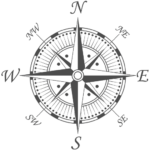SEO Audits: Why Your Hunting Website Isn’t Ranking and How to Fix It
Having a well-designed website is essential for any hunting business, but if your site isn’t ranking on search engines, you’re missing out on potential customers. SEO audits can help identify the issues holding your site back and provide actionable solutions to improve your rankings.
In this guide, we’ll explore the importance of SEO audits, common issues that hunting websites face, and how to address them effectively.

Why SEO Audits Are Crucial for Hunting Websites
An SEO audit is a comprehensive analysis of your website’s search engine optimization. For hunting websites, it’s especially important to:
- Identify Weaknesses: Detect issues that are preventing your site from ranking.
- Improve User Experience: Ensure your website provides a seamless experience for visitors.
- Boost Visibility: Optimize your site to appear higher in search engine results.
- Increase Conversions: Attract more qualified traffic that converts into customers.
Common SEO Issues on Hunting Websites
Hunting websites often face specific challenges that can affect their rankings:
1. Poor Keyword Targeting
Failing to use the right keywords can make it difficult for potential customers to find your site.
Solution:
- Conduct thorough keyword research.
- Focus on high-intent and long-tail keywords like “guided hunting trips” or “best hunting gear.”
- Use keywords naturally in titles, headings, and meta descriptions.
2. Slow Page Load Times
A slow website can frustrate users and lead to higher bounce rates, negatively impacting your rankings.
Solution:
- Optimize images and reduce file sizes.
- Use a content delivery network (CDN).
- Minimize HTTP requests and enable browser caching.
3. Lack of Mobile Optimization
Many users search for hunting products or services on mobile devices. If your site isn’t mobile-friendly, you’ll lose out on valuable traffic.
Solution:
- Implement responsive design.
- Ensure text, buttons, and images are easily viewable on smaller screens.
- Test your site’s mobile performance using Google’s Mobile-Friendly Test.
4. Missing or Inconsistent Meta Tags
Meta titles and descriptions are crucial for helping search engines and users understand your content.
Solution:
- Write unique, keyword-rich meta titles and descriptions for each page.
- Include a clear call-to-action (CTA).
- Avoid duplicating meta tags across your site.
5. Thin or Duplicate Content
Low-quality or repetitive content can harm your rankings and fail to engage users.
Solution:
- Create high-quality, informative content tailored to your audience.
- Avoid duplicate content by consolidating similar pages.
- Regularly update your blog with fresh topics, such as “Top Hunting Gear for Beginners” or “Planning a Successful Elk Hunt.”
6. Broken Links and 404 Errors
Broken links frustrate users and signal to search engines that your site isn’t well-maintained.
Solution:
- Regularly check for broken links using tools like Screaming Frog or Ahrefs.
- Redirect 404 errors to relevant pages.
- Ensure all internal and external links are functional.
7. Weak Backlink Profile
Backlinks from reputable sites boost your domain authority and improve rankings. Hunting websites often struggle with building quality links.
Solution:
- Collaborate with influencers or outdoor blogs to earn backlinks.
- Submit guest posts to hunting-related websites.
- Create shareable content like infographics or videos.
8. Ignoring Local SEO
If your hunting business operates in specific locations, failing to optimize for local SEO can result in missed opportunities.
Solution:
- Claim and optimize your Google Business Profile.
- Use location-based keywords, such as “hunting guides near [city].”
- Encourage customer reviews on Google and Yelp.
Steps to Perform an SEO Audit for Your Hunting Website
1. Analyze Your Website’s Performance
Use tools like Google Analytics and Google Search Console to assess metrics such as traffic, bounce rates, and click-through rates (CTR).
2. Check Technical SEO
Evaluate your website’s technical health, including:
- Site speed.
- Mobile-friendliness.
- Indexability and crawlability.
- HTTPS security.
3. Evaluate On-Page SEO
Review your site’s content and structure for:
- Keyword usage.
- Proper use of H1, H2, and H3 tags.
- Internal linking.
- Image optimization with descriptive alt tags.
4. Review Off-Page SEO
Assess your backlink profile to ensure:
- Links are from reputable, relevant websites.
- Anchor text is varied and natural.
- Spammy or toxic links are disavowed.
5. Develop an Action Plan
Based on your findings, create a prioritized list of improvements to address the most critical issues first.
Tools for Conducting an SEO Audit
- SEMrush or Ahrefs: Comprehensive site audits and backlink analysis.
- Google Analytics: Traffic and user behavior insights.
- Google Search Console: Identify crawl errors and monitor keyword performance.
- GTmetrix: Page speed analysis and recommendations.
- Screaming Frog: Technical SEO audit tool.
Benefits of Fixing SEO Issues
Addressing the issues uncovered in an SEO audit can:
- Improve your website’s rankings on search engines.
- Increase organic traffic and reduce reliance on paid ads.
- Enhance user experience and reduce bounce rates.
- Drive more conversions, whether it’s gear sales or trip bookings.
Unlock Your Hunting Website’s Potential
An SEO audit is a critical step in identifying and fixing the barriers preventing your hunting website from ranking. By addressing technical, on-page, and off-page issues, you can boost your visibility, attract more customers, and achieve long-term success online.
At Big Canoe Digital, we specialize in conducting detailed SEO audits for hunting businesses. Ready to improve your website’s performance? Contact us today and let’s start building your success story!
See How We Can Help You Succeed
Discover how our tailored marketing strategies and proven methods can help your outdoor business thrive.




